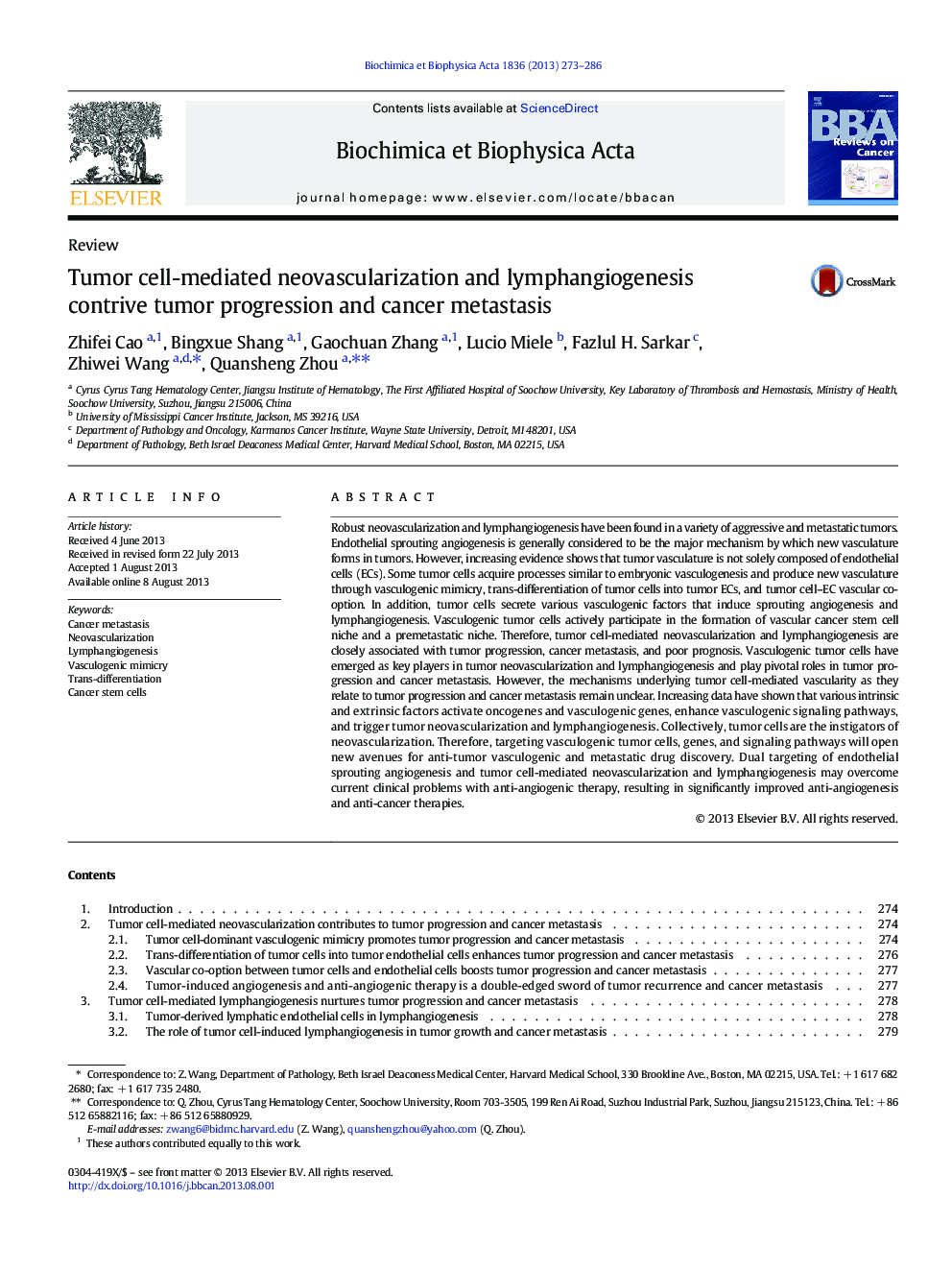| Article ID | Journal | Published Year | Pages | File Type |
|---|---|---|---|---|
| 2100889 | Biochimica et Biophysica Acta (BBA) - Reviews on Cancer | 2013 | 14 Pages |
Robust neovascularization and lymphangiogenesis have been found in a variety of aggressive and metastatic tumors. Endothelial sprouting angiogenesis is generally considered to be the major mechanism by which new vasculature forms in tumors. However, increasing evidence shows that tumor vasculature is not solely composed of endothelial cells (ECs). Some tumor cells acquire processes similar to embryonic vasculogenesis and produce new vasculature through vasculogenic mimicry, trans-differentiation of tumor cells into tumor ECs, and tumor cell–EC vascular co-option. In addition, tumor cells secrete various vasculogenic factors that induce sprouting angiogenesis and lymphangiogenesis. Vasculogenic tumor cells actively participate in the formation of vascular cancer stem cell niche and a premetastatic niche. Therefore, tumor cell-mediated neovascularization and lymphangiogenesis are closely associated with tumor progression, cancer metastasis, and poor prognosis. Vasculogenic tumor cells have emerged as key players in tumor neovascularization and lymphangiogenesis and play pivotal roles in tumor progression and cancer metastasis. However, the mechanisms underlying tumor cell-mediated vascularity as they relate to tumor progression and cancer metastasis remain unclear. Increasing data have shown that various intrinsic and extrinsic factors activate oncogenes and vasculogenic genes, enhance vasculogenic signaling pathways, and trigger tumor neovascularization and lymphangiogenesis. Collectively, tumor cells are the instigators of neovascularization. Therefore, targeting vasculogenic tumor cells, genes, and signaling pathways will open new avenues for anti-tumor vasculogenic and metastatic drug discovery. Dual targeting of endothelial sprouting angiogenesis and tumor cell-mediated neovascularization and lymphangiogenesis may overcome current clinical problems with anti-angiogenic therapy, resulting in significantly improved anti-angiogenesis and anti-cancer therapies.
